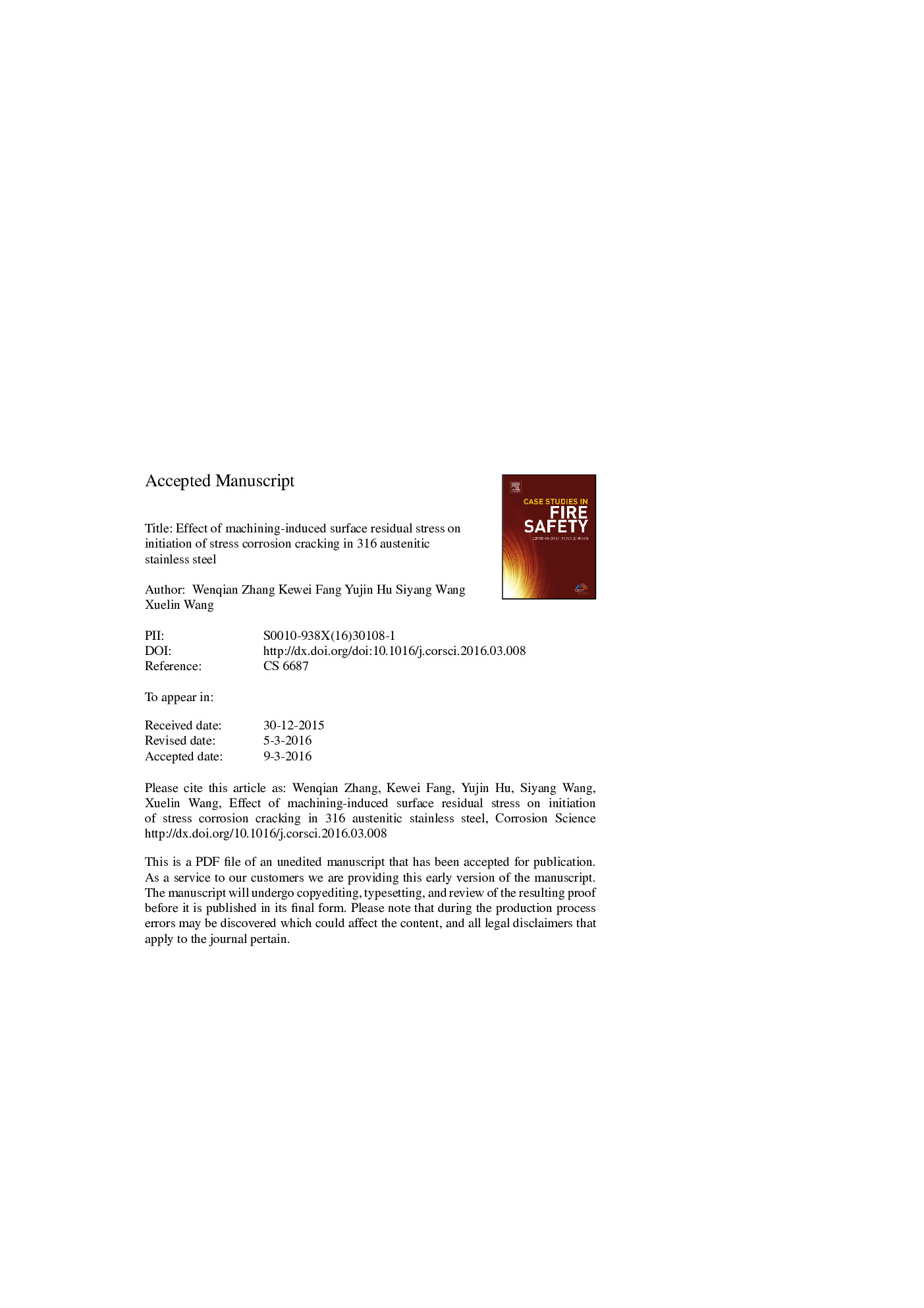| Article ID | Journal | Published Year | Pages | File Type |
|---|---|---|---|---|
| 7894464 | Corrosion Science | 2016 | 52 Pages |
Abstract
The effect of machining-induced surface residual stress on the stress corrosion cracking (SCC) initiation in 316 stainless steel was investigated in boiling magnesium chloride solution. The crack density was used to evaluate the SCC initiation and propagation at different residual stress levels. The results showed a strong correlation between the residual stress and the resultant micro-crack density. When the residual stress reached a critical value, the micro-crack density increased significantly in the very early phase, and the critical stress is 190Â MPa for 316 stainless steel. Additionally, the cracking behavior could be correlated with the machining effects on the surface layer.
Related Topics
Physical Sciences and Engineering
Materials Science
Ceramics and Composites
Authors
Wenqian Zhang, Kewei Fang, Yujin Hu, Siyang Wang, Xuelin Wang,
